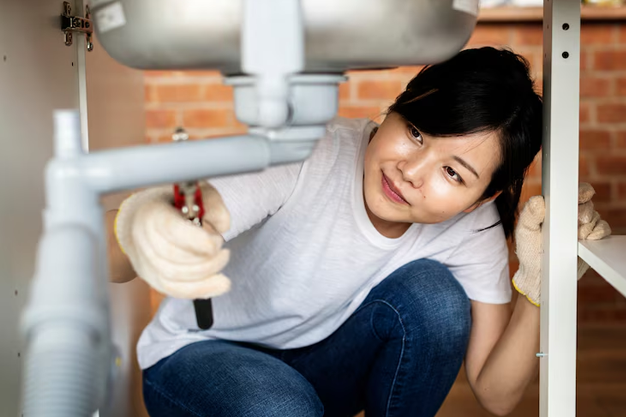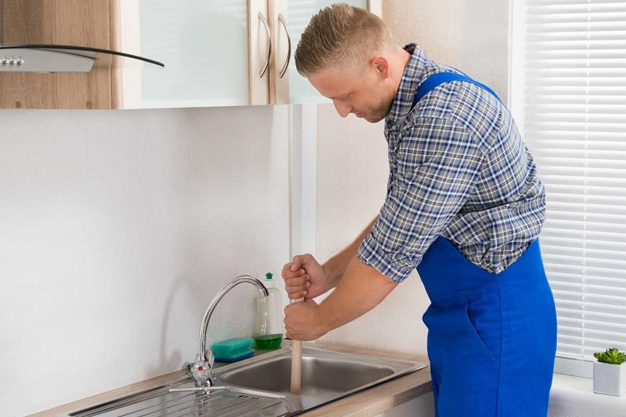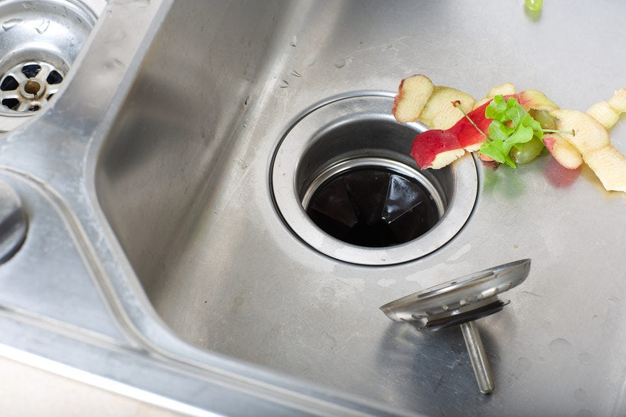 August 12, 2024
August 12, 2024
Clogged drains and blocked pipes can start as minor inconveniences but quickly become a big headache if addressed. From slow draining to potential flooding to pricey repairs, knowing the common causes of clogged drains and how to prevent them can save hours of time, money, and hassle. Here is a comprehensive guide on the eight most common household causes of clogged drains and some effective strategies for preventing and fixing them.

1. Hair
Of all the materials people wash and discard in their sinks, hair is one of the most infamous causes of drain blockage. Hair that gets trapped in the drains attracts grease, soap scum, and other sticky substances, which culminates in the formation of clogs. To prevent hair-related blockages:
- Install Drain Guards: Install a hair-catching guard or screen to all your drains. These are ideal for catching hair before falling into the basin or sink.
- Regular Cleaning: To avoid the formation of a layer on these guards, clean them as frequently as possible.
- Use a Hair Catcher: For showers and bathtubs, you may choose a hair catcher that is easily disposable and replaceable to facilitate cleaning.
If hair accumulates on the drain, a plumber or a handheld drill is appropriate to address the issue. Please do not use chemicals to unclog your drain since they can corrode the pipes and are least effective in treating hair clogs.
Book your Plumber
2. Soap
Soap may cause blockage in drains, mainly when it contains fat and grease from using natural soap bars. If soap is used on hard water it creates a hard black material that will clog the pipes if not removed. Here’s how to manage soap-related issues:
- Switch to Soap-Free Washes: Choose body wash or liquid soaps with a lower chance of developing scum on the surface.
- Regular Pipe Maintenance: It is worth considering a professional cleaning service or pressure washing on your pipes at least once every few months to deal with soap scum.
- Use a Mild Cleaner: It is also good to occasionally use a mildly abrasive and non-acidic solution to clean your shower, tub, and sinks to eliminate soap scum.
3. Dirt
Dirt and mud may restrict the flow of these pipes and ultimately cause choking or clogging after some time. As much as it is customary to rinse off clothes and the body to remove dirt, too much dirt from your clothes finding its way to the drain can cause issues. To minimize dirt-related clogs:
- Shake Off Dirt Outdoors: Coordinate washing clothes or washing off in the shower, and remove excess soiling through shaking or rinsing off on the compound.
- Use a Catch Basin: Professional cleaning companies recommend placing a catch basin into the sink or shower to filter larger dirt particles before they reach the drain.
- Regular Drain Cleaning: Clean your drains frequently so you can wash off any dirt that might have stuck on the surface of the drains.

4. Food Waste
Any food waste and elements such as coffee grounds, tea leaves, and grease should not be flushed down the drain. These materials are not biodegradable and may lead to clogging of drainages. The food industry is primarily to blame for this problem. To manage food waste:
- Set Up a Compost Bin: Implement a recycling system for green waste, such as fruit and vegetable peelings.
- Dispose of Grease Properly: It is recommended that grease be allowed to cool and form a solid to help dispose of the trash. Paper towels may also be used to soak up grease and dispose of it appropriately.
- Use a Garbage Disposal Wisely: Do not overload your garbage disposal to the extent of putting large chunks of food, and do not dispose of other wastes in it other than small scraps of food that can easily be broken down.
5. Mineral Buildup
Hard water consists of calcium and magnesium minerals on your pipes’ inner walls. This accumulation leads to blockade and decreases water flow through the pipeline. To address mineral buildup:
- Install a Water Softener: Most people use hard water in their homes, which can be managed using a water softener that helps treat the water by removing mineral deposits.
- Regular Descaling: Cleaning the mineral deposit buildup from pipes and fixtures should be done occasionally with the help of descaling solutions.
- Professional Plumbing Services: If the problem is quite severe and involves mineral accumulation, it is best to seek the services of a plumber to clean and maintain the drainage system.
6. Small Objects
Tiny things such as cotton swabs, hairpins, and tiny jewels may accidentally fall into your pipes and cause blockage. To prevent issues:
- Dispose of Small Items Properly: Make sure other things such as sanitary pads, baby diapers, and plastic bags do not go down your toilet or sink. Discard small items into the trash bin or put them in the recycling bin.
- Use Drain Covers: Drain covers or mesh guards capture the small items and prevent them from entering the pipes.
- Immediate Retrieval: If small items have fallen into the drain, you should get them with the help of a particular tool or call a professional plumber.
7. Toilet Paper Buildup
Too much toilet paper is a significant cause of blockage in the toilet and the drain system. To manage toilet paper-related issues:
- Use Toilet Paper Sparingly: Too much toilet paper is a significant cause of blockage in the toilet and the drain system. To manage toilet paper-related issues: To manage toilet paper-related issues.
- Plunging: If you encounter a clog that is not too severe, use a plunger to remove the blockage.
- Professional Help: If the clogs are too severe and plunging is not a solution, one should call a plumber for them to help.
8. Tree Roots
Tree roots can penetrate sewer lines through even the tiniest cracks, leading to blockages and extensive pipe damage. To prevent tree root problems:
- Regular Inspections: Underground pipes should be inspected periodically to determine any tree root invasion on pipes.
- Professional Root Removal: If roots are found, they may need professional attention, such as rooter service or trenchless repair to clean and fix the pipe.
- Plant Management: Do not plant trees or large shrubs close to pipes, and ensure roots do not infringe on plumbing systems.
Clogged drains can be avoided by creating awareness of the practices and habits needed in managing and managing drain ways, engaging in regular maintenance, and correctly using the railways properly. To promote the well-being of the pipes in your home, it is crucial to gain essential information concerning the regular sources of the clogged drain and the required precautionary measures to observe so that you may resist various pipe expenses commonly associated with plumbing.
In case you experience regular or severe plumbing issues that you can’t solve, do not wait or self-solve, call a professional plumber. At Magnificent Plumbing and Rooter, we provide emergency services for your plumbing problems so that you do not have any issues with the drains.
Contact Now
Call Plumber Now
 August 12, 2024
August 12, 2024

